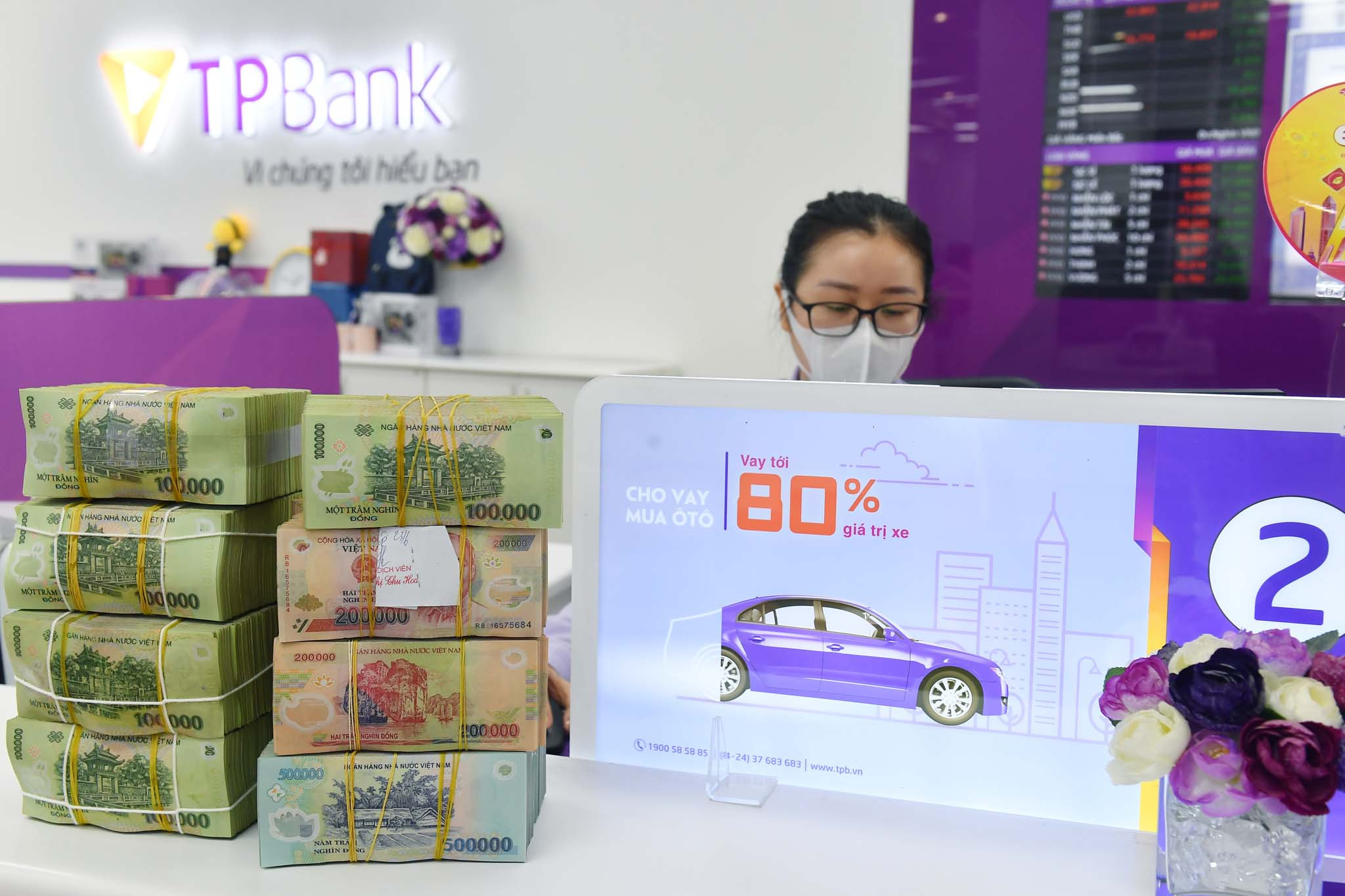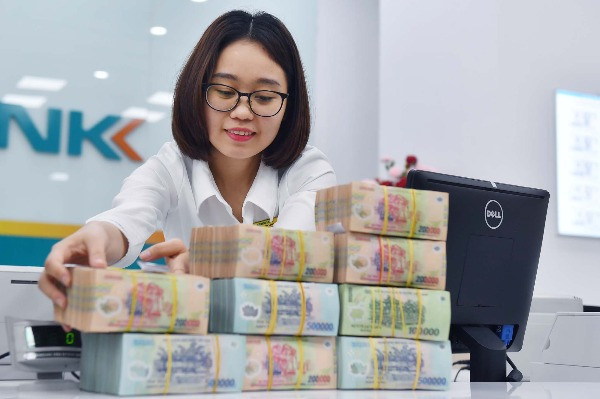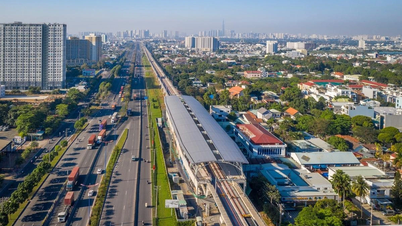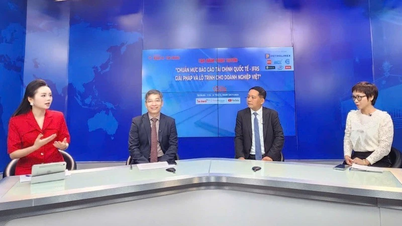After the State Bank of Vietnam continued to reduce some operating interest rates by 0.5% from May 25, bank leaders expressed their consensus and committed to continue reducing deposit and lending interest rates.
According to the latest decision of the State Bank of Vietnam (SBV), from May 25, the overnight lending interest rate in interbank electronic payments and lending to cover capital shortages in SBV's clearing payments for credit institutions will decrease from 6.0%/year to 5.5%/year.
The refinancing rate is reduced from 5.5%/year to 5.0%/year; the rediscount rate remains at 3.5%/year.
The maximum interest rate applied to deposits with terms from 1 month to less than 6 months is reduced from 5.5%/year to 5.0%/year.
This is the third consecutive time since the beginning of the year that the State Bank has made a move to adjust down the operating interest rate.
Mr. Le Quang Vinh - Deputy General Director of Vietcombank assessed that in recent times, the State Bank has directed the monetary policy channel very flexibly and promptly, contributing to stabilizing the macro economy. At the same time, it has created conditions for commercial banks to be able to provide more support to customers.
Since the beginning of the year, Vietcombank has reduced interest rates twice. From January 1 to April 30, Vietcombank reduced interest rates by 0.5% across the board, with 130,000 customers receiving interest rate reductions. The outstanding debt balance was reduced by about VND800,000 billion.
Phase 2, from May 1 to July 31, 110,000 customers will have their interest rates reduced, the outstanding debt with reduced interest rates is about 700,000 billion VND.
Regarding the possibility of adjustments to reduce lending interest rates in the coming time, Vietcombank's Deputy General Director said that when the mobilization interest rate level is reduced evenly, lending interest rates will also decrease accordingly.

Sharing the same opinion with Mr. Vinh, Mr. Pham Nhu Anh, General Director of Military Bank (MB), said that this is the right time to help banks lower deposit interest rates and thereby create conditions to reduce lending interest rates.
“With the market currently absorbing capital very weakly and the economy facing many difficulties, reducing operating interest rates will reduce many difficulties for customers and banks in the coming time,” said MB leaders.
Since the beginning of the year, MB has launched 120,000 billion VND of low-interest credit packages to serve customer needs and support customers during difficult times.
MB has reduced interest rates to support VND500 billion for disadvantaged customers and priority customers as required by the Government and the State Bank.
Mr. Pham Nhu Anh said that MB will continue to have new policies to support customers in the coming time.
“MB’s credit growth since the beginning of the year has been around 6.5%. We expect that with the new lower interest rate, the bank will achieve better credit growth in the remaining months. It is expected that by the end of June, MB’s growth rate will reach 9%,” he said.
At Tien Phong Commercial Joint Stock Bank (TPBank), Mr. Nguyen Hung, General Director, said that only when the mobilization interest rate in the market decreases and the cost of capital decreases, will commercial banks be able to adjust the lending interest rate for businesses and people. This will then better support economic development.
“Commercial banks have tried to save capital and costs as much as possible to have the opportunity to reduce interest rates, but the biggest component of lending interest rates is capital costs. If capital costs can be reduced, commercial banks will have the opportunity to significantly reduce lending interest rates. At that time, we will also launch a number of support programs for people to borrow capital, lowering lending interest rates to help businesses overcome difficulties,” said the General Director of TPBank.
Credit growth at TPBank is currently over 5%. Mr. Nguyen Hung believes that once interest rates are "more comfortable", everything will be more favorable, investment and production and business decisions will be more feasible, and credit growth can be expected.

Source

























![[Photo] Signing of cooperation between ministries, branches and localities of Vietnam and Senegal](https://vphoto.vietnam.vn/thumb/1200x675/vietnam/resource/IMAGE/2025/7/24/6147c654b0ae4f2793188e982e272651)













































































Comment (0)